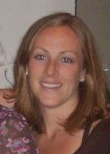Increasing Student Engagement: Instructional/Assessment Strategies that Support the Mathematical Processes

For the past 7 years I have been teaching secondary mathematics at P.E. Trudeau HS in Markham, Ontario, Canada. Previously, I was the Intermediate-Senior Mathematics Consultant for the York Region District School Board in Ontario, and before that, Head of Mathematics at Newmarket HS in Newmarket, Ontario. I have been teaching for 30 years. I love what I do. Please browse our site. We hope you may be inspired to expand your repertoire of instructional/assessment strategies. Enjoy!
Karen Timson

I began my teaching career 3 years ago at P.E. Trudeau HS in the phys-ed and math department. I graduated from the Faculty of Education at the University of Ontario where I was first introduced to the idea of differentiated instruction and assessment. Ever since, I have been passionate about implementing these strategies into my classroom. I hope you enjoy browsing our site!
Agatha Kowalewski

Jennifer Black
Instruction/Assessment/Evaluation and the Mathematical Processes
"The seven mathematical process expectations describe the actions of doing mathematics. They support the acquisition and the use of mathematical knowledge and skills. They can be mapped to three of the categories of the Achievement chart - Thinking, Communication, and Application. The fourth category, Knowledge and Understanding, connects to the content of each course/program. Students apply the mathematical processes as they learn the content for each course/program."
Leading Math Success, TIPS4RM
The seven mathematical processes are: Problem Solving, Reasoning & Proving, Reflecting, Selecting Tools & Computational Strategies, Connecting, Representing, and Communicating. Because assessment and evaluation of student achievement is based on the curriculum expectations, which includes the mathematical processes, it is important that we use a variety of strategies and tools to effectively assess and evaluate what our students know and can do. Carol Ann Tomlinson, in her book How to Differentiate Instruction in Mixed-Ability Classrooms (Prentice Hall, 2nd Edition, 2004), encourages teachers to adjust content, process, and product in response to student readiness, interests, and learning styles/needs. The instruction/assessment/evaluation strategies and tools on this site were developed/adapted to address the mathematical processes, and thus support teachers as they seek to differentiate instruction and assessment.
Karen and Agatha
